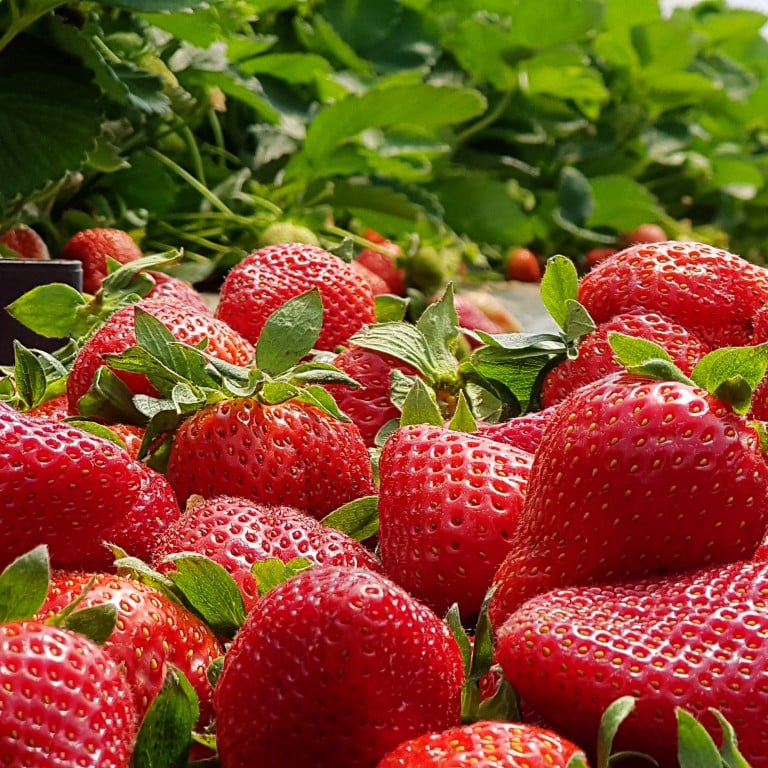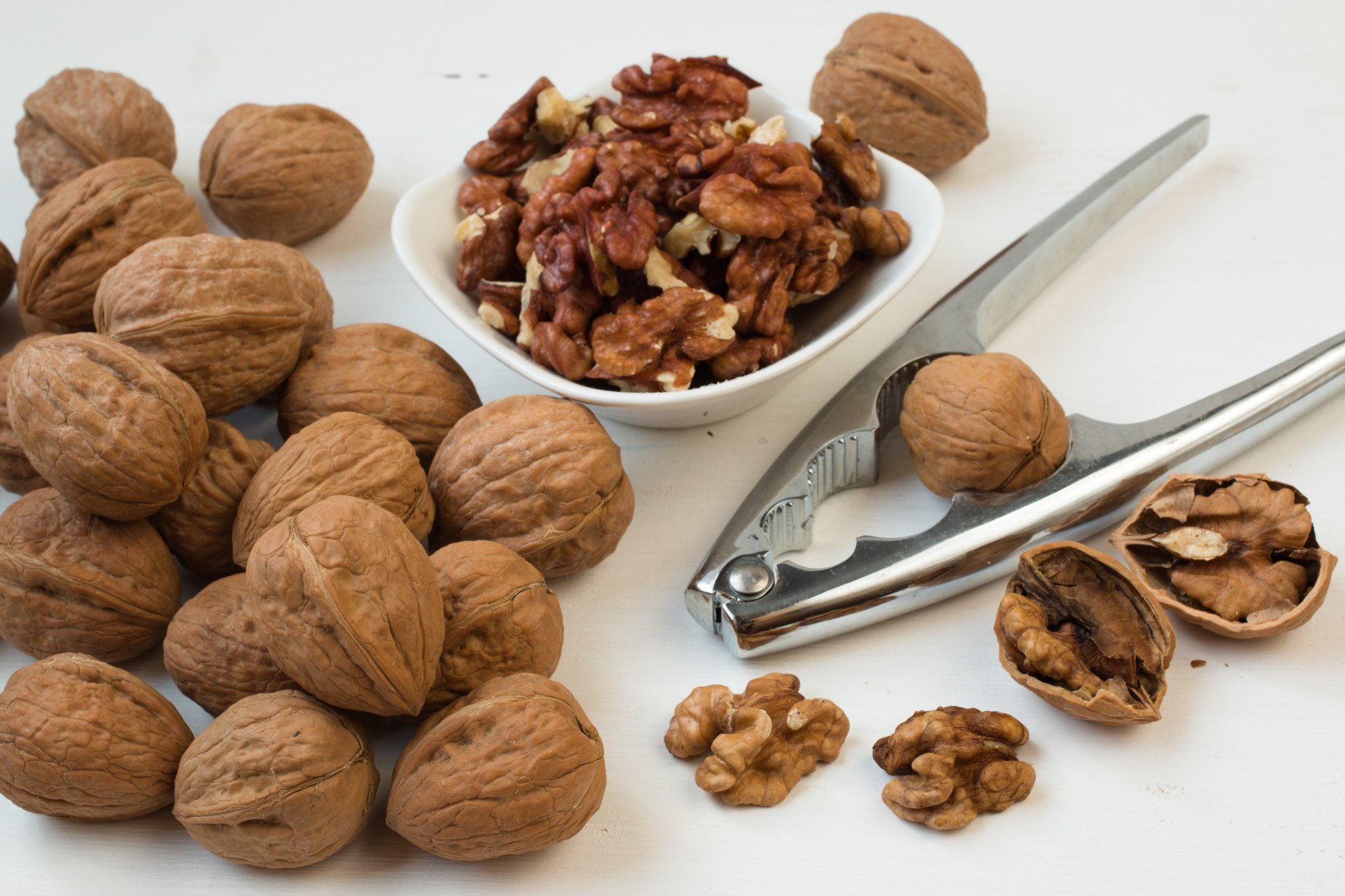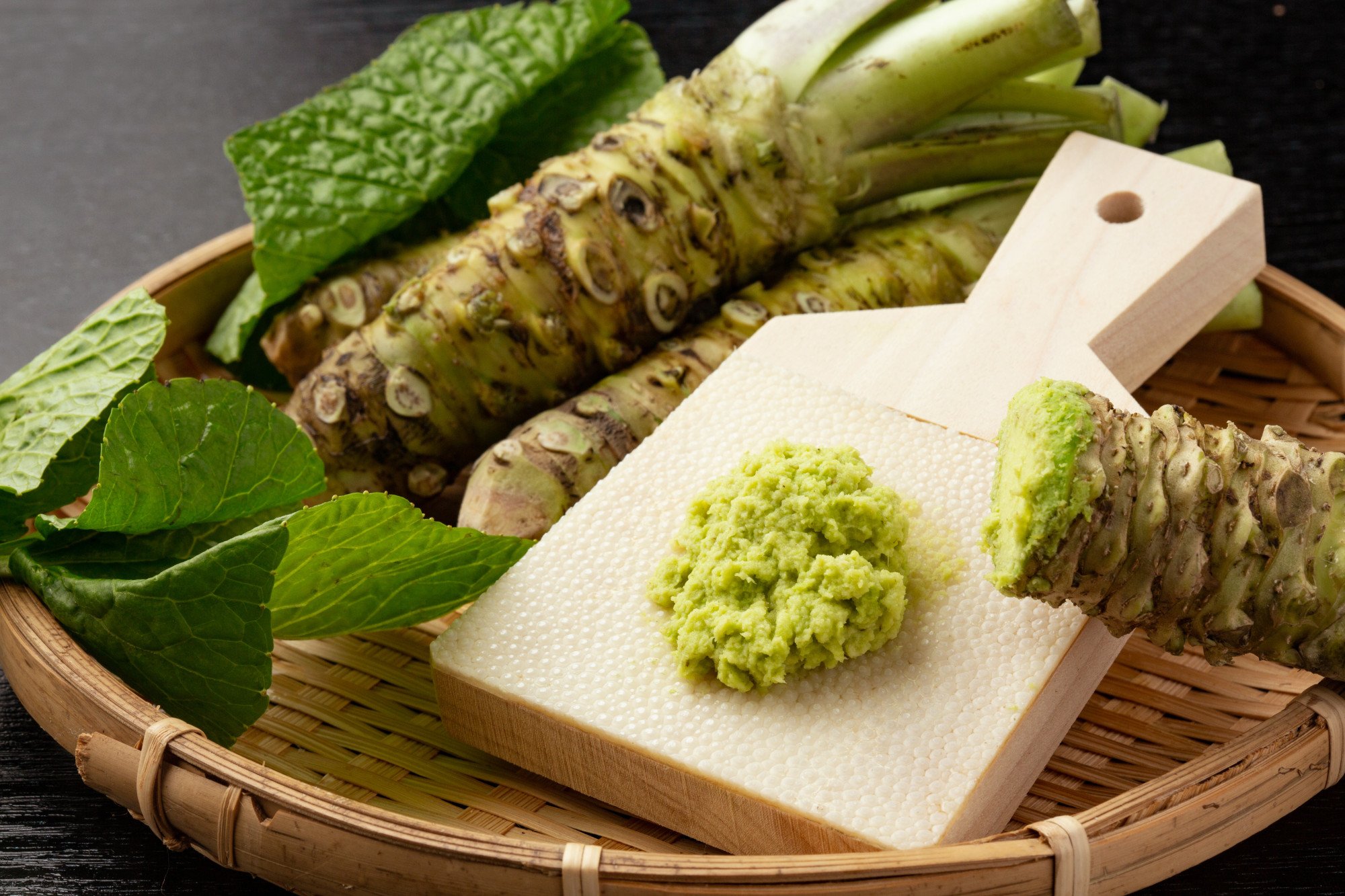
Explainer | Why eating strawberries can lower the risk of dementia and help protect our brains, and the similar benefits of omega 3-rich salmon, walnuts and wasabi
- Strawberries have been found to be high in an antioxidant, anti-inflammatory compound that may limit build-ups of protein in the brain linked to Alzheimer’s
- Omega 3-rich fatty fish, Japanese horseradish, blueberries and walnuts are also good brain foods. We look at why eating them benefits our memory and cognition
Strawberries are the latest superfood believed to help protect our brains and reduce the risk of dementia.
They contain a flavonoid – a compound with antioxidant properties that can help manage inflammation – called pelargonidin, which may limit the development of tau tangles in the brain.

Dr Puja Agarwal, an assistant professor in the Department of Internal Medicine at Rush University, in Chicago, in the United States, was part of a team that established just how powerful strawberries are at protecting the brain.

She and her team observed what people ate during their lifetime, tested their cognition in tasks and memory tests, and analysed their brains donated after death.
The study found that those with the highest pelargonidin intake ate more than one serving – a half cup of strawberries – a week, Agarwal says.

A higher pelargonidin intake was linked to fewer tau tangles.
Fruit is an important component of the “Mind” (Mediterranean-Dash intervention for neurodegenerative delay) diet developed at Rush University.
This diet includes foods that have been strongly linked to increased brain health.
Keep your brain sharp with the heart-healthy Mediterranean or Mind diets
Studies suggest dementia risk could be reduced by as much as 53 per cent for people who follow this diet rigorously, and by about 35 per cent for those who follow it moderately.
5 ordinary foods with extraordinary health benefits, from beets to broccoli
“All you hear is eat f*****g walnuts,” she writes.
It’s no good just hearing a thing is good for us; it’s only meaningful if we understand why.
The Rush University researchers hypothesised that strawberries’ preventive effects on tau tangles is to do with pelargonidin’s antioxidant and anti-inflammatory properties.
How antidepressants, sleeping pills and other drugs raise dementia risk
“Through animal studies,” Agarwal says, “we know pelargonidin crosses the blood-brain barrier and has neuroprotective effects.”
Other foods rich in flavonoids deliver significant benefits not just for brain health but overall health.

Fish, rich in omega 3 fatty acids, is also good brain food. Cold-water fatty fish, such as salmon, are especially rich in this important brain fat.
The brain is the fattiest organ in the body, and a good supply of healthy fats keeps it functioning properly.

A study published by the Department of Cognitive Health Science at Tohoku University, in Japan, found that taking a wasabi supplement every night for 12 weeks improved working memory and also episodic memory – the conscious retrieval, or recall, of memories – in adults aged 60 to 80.

Researchers described the changes in memory as substantial and dramatic.
There is one caveat: the wasabi needs to be made from Japanese horseradish. The green condiment found in most sushi restaurants outside Japan is made from non-Japanese horseradish, cornflour and food colouring.
Real wasabi’s antioxidant and anti-inflammatory properties help enhance neural functions in the brain and neural plasticity in the hippocampus, an area of the brain which is crucial for memory.
Hong Kong hi-tech farm tests growing wasabi indoors as Japan’s harvests drop
Regarding the implications the latest studies might have in the fight against dementia, Agarwal says: “There are simple lifestyle approaches, such as eating more berries, to reduce your risk.”
We may not be able to eliminate the risk of getting dementia, but we can reduce it – starting at breakfast with a bowlful of berries.











